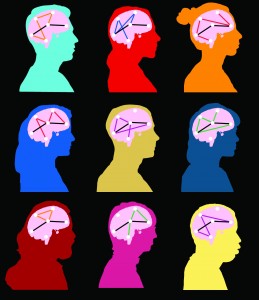Gates Research Group
Quantitative Psychology ~ University of North Carolina at Chapel Hill
gimme

Image courtesy of Brian Gates
Click here to go to the gimme website.
Group Iterative Multiple Model Estimation (GIMME) is a freely disseminated algorithm for data-driven model searches for variables collected among multiple time points for each individual. It is one of the only methods to date that can reliably obtain both the presence and direction of effects for psychophysiological (e.g., functional MRI) and ecological momentary assessments (e.g., observational coding; daily diary; intensive longitudinal data).
GIMME reliably recovers the true structure of connections and estimates the weights attributed to each relation (equivalently termed “path” or “adjacency” or “connection”). Importantly, patterns are obtained at both the group and individual levels.
The Gates research group developed and actively maintains the R package:
https://cran.r-project.org/web/packages/gimme/index.html
Refer to this paper for the general GIMME algorithm:
Gates, K. M. & Molenaar, P. C. M. (2012). Group search algorithm recovers effective connectivity maps for individuals in homogeneous and heterogeneous samples. NeuroImage, 63, 310-319. PDF
and this paper if you use the subgrouping option:
Gates, K. M., Lane, S. T., Varangis, E., Giovanello, K., & Guskiewicz, K. (2017). Unsupervised classification during time-series model building. Multivariate Behavioral Research, 52(2), 129-148.

University Operator: (919) 962-2211 | © 2024 The University of North Carolina at Chapel Hill |